Ladies Day at Royal Ascot
It had come to Father Green’s ears, through Emily, that the ladies of the parish, namely, the Catholic Women’s League, thought their priest was less than appreciative of them and their works.
Perry sighed when he heard this, it was sometimes more than he could cope with, keeping all the elements of the parish happy. However, he valued Emily’s opinion and she seemed to think he could do no harm by giving the good ladies a little TLC.
Emily had hinted that his interest could take the form of an event or outing that the women would enjoy and which he could attend with commitment and enthusiasm – quite a challenge!
Perry had vague memories of previous undertakings by the CWL led by their doughty Chairwomen, Brenda Bartholomew. He had in mind a particular trip to a sewing machine museum, where he had to use all his priestly guile to avoid attending.
He needed, therefore, to think hard before something equally dreadful came his way. What would constitute a decent ladies day? Then it hit him – Royal Ascot’s Ladies Day.
The Gold Cup, run on the Thursday, was the centrepiece of the meeting – the Queen, the hats, Frankie Dettori, they’d love it. More to the point, he would love it.
The suggestion was put to the members at the next CWL meeting, where it received a tentative reception. Mainly, it was said, because some of the ladies were worried that Father Green would be bored with such an outing. And while Perry was able to put their minds at rest on that point, Emily had taken a back seat to stifle her amusement.
When the committee suggested that the Grandstand would be the most suitable enclosure at around £50 a head – bookable in advance – there were a few protests. However, Father Perry, not wanting to spend the afternoon on the heath or in the Silver Ring, enthusiastically extolled the Grandstand facilities, which included not only a better view of the race, but of Her Majesty when presenting the Gold Cup. In addition, he stressed, they would benefit from the many bars, food outlets, tote windows and overhead cover should it rain.
Father Perry’s final point won over the last of the doubters, since there had been much debate about their outfits.
As the date loomed nearer, Perry sensed there was a growing excitement, almost to match his own,
A coach was hired and the morning dawned bright. A small crowd gathered outside the Church to see them off. It was generally agreed that the outfits, although rather varied and some bordering on the eccentric, were overall, a credit to St Joseph’s.
Always hoping to air her voice, Brenda had brought along the accordionist, Colin Campbell, to provide a party atmosphere on the coach, and had also booked a local photographer to capture the ladies haute couture.
On the journey, Colin, sitting on the back seat, played a selection of songs from the shows, unaware that the singing and chatter from three dozen excitable women was making it increasingly difficult for Perry to study his Racing Post. But study he did.
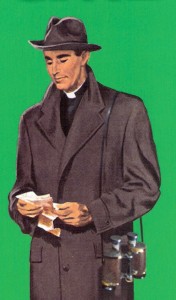 If anyone, including Emily and Brenda, had expected Father Green to stay with them once inside the Grandstand, they were soon disillusioned, as he quickly melted into the crowd.
If anyone, including Emily and Brenda, had expected Father Green to stay with them once inside the Grandstand, they were soon disillusioned, as he quickly melted into the crowd.
Punting wise, Perry would agree, this was not his finest hour – four straight losers including his nap and next best, had almost emptied his wallet. To make matters worse, although desperate for a drink, he had decided to steer clear of the bars to avoid being waylaid by zealous parishioners. Finally, however, the combination of losing and lying low began to take its toll. He had to have that drink and do a couple of forecasts – at least try to get out of trouble.
He was just downing his second whiskey in quick succession when two of his parish ladies spotted him from across the bar and within seconds it was too late.
“I know you don’t gamble Father,” said Maureen, “but Molly and I have been wicked and guess what, we’ve backed all three of Frankie Dettori’s winners.”
Perry smiled thinly.
“How splendid,” he said hollowly, “You must excuse me now while I watch this race.”
“We’ll come with you,” was the dreaded response. And so it was that Father Perry Green watched the penultimate race – the Chesham Stakes, without a penny on the much fancied World Premier, while his two companions twittered on endlessly.
After a while Perry’s face must have betrayed his tension because Maureen said, “Father you look pale, you have been good bearing with all this racing, we are going to buy you a coffee.”
Mercifully, as they left, he joined a nearby Tote queue to have his last £10 on a dual forecast – but on what?
“Frankie was sure to be in the shake up again,” he thought, “but betting on the favourite wouldn’t help his cause, unless he added a rank outsider.”
He scanned the racecard. Diaghilef was carrying 9st 7lb – top weight and 40-1 – “Even so,” he thought, “top weights are sometimes favoured by firm ground. So, smiling at the Tote girl he muttered, “Nil Desperandum,” and kissed his tenner goodbye.
The queue at the coffee stall must have been very long, for Perry had time to watch the race on a TV monitor under the stands. The King George V Handicap was over a mile and a half, so the horses would start away to the left on the far side of the course – all 20 of them.
Perry scanned the TV for his colours, but with such a big field the images were too small for him to identify clearly, worse still, the shouts of the punters drowned out the commentary – anyway, it looked like a blanket finish.
Just then Maureen and Molly returned.
“Sorry there’s only half a cup Father, we were jostled and nearly knocked over when the race started.”
Suddenly, he found himself sweating – the noise and the disappointment had finally got to him.
What happened next, Perry could never explain. Did he really faint, or was it his self-preservation coming to the rescue as it had in the past. He remembers Maureen’s anxious face and someone calling out, “Look out the priest is falling”.
Father Green felt himself slip gracefully from his chair. Was that his voice saying, “I must get outside, I need air?”
Many willing hands worked towards this end. Until at last, Perry found himself sitting quietly on a bench on the Grandstand lawn.
Attentive, anxious faces were all around him, but through the babble, he heard the tannoy announce, “Here is the result of the photograph for the sixth race: First Number 1, Diaghilef.”
“Oh what a pity,” said a woman nearby, “Frankie was second.”
Moments later, a St Johns ambulance man said, “He’s looking better now, see, he’s smiling.”
“I’ll be alright soon, thankyou,” said Father Green, “Just the heat, I expect.”
Then looking up at Maureen and Molly he said, “Give me a few minutes and I’ll follow you down to the coach.”
Which he did, but not before revisiting the Tote windows, where incredibly, he learned that the payout for his £10 dual forecast was £4,147 – “Certainly Nil Desperandum there,” he mused, and looking back, thought it could be his biggest win ever.
On the way home, Brenda, with accordion accompaniment, gave them soulful renditions of Climb every Mountain and Luck be your Lady Tonight.”
Meanwhile the ladies assured each other that in spite of everything, Father Green looked to have enjoyed the day.
Maureen and Molly vouched that he never stopped smiling all the way home.
Later, Emily gave further testimony that his smile had continued well into the evening.
This story is from Michael’s book,
The Gambling Adventures of Father Green,
of which he has a few signed copies for sale.
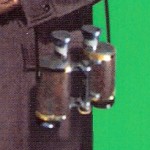
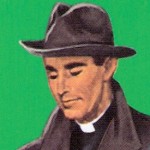

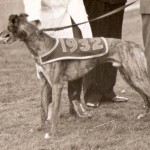
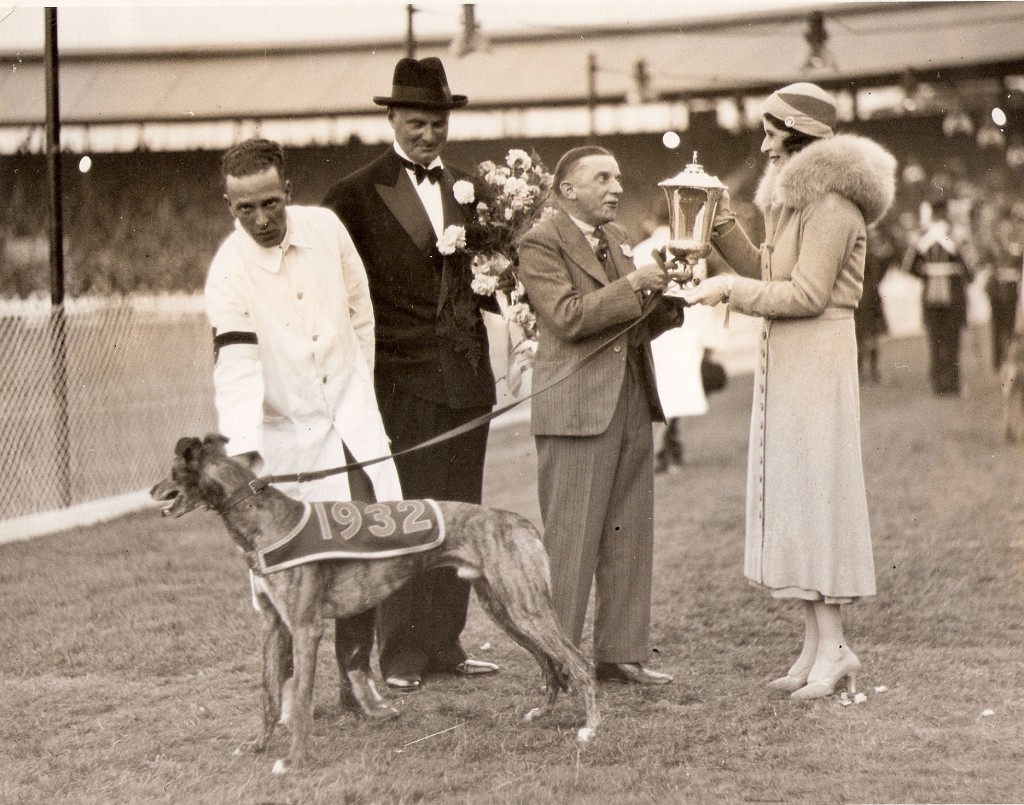
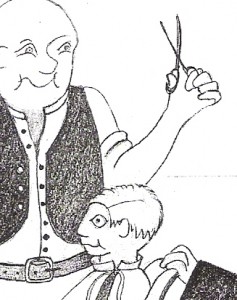
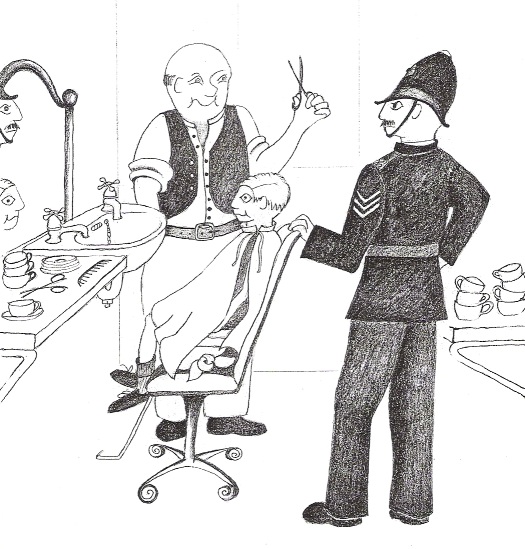 “Afternoon Mr Young.” The stentorian voice preceded the presence of two uniformed police officers.
“Afternoon Mr Young.” The stentorian voice preceded the presence of two uniformed police officers.